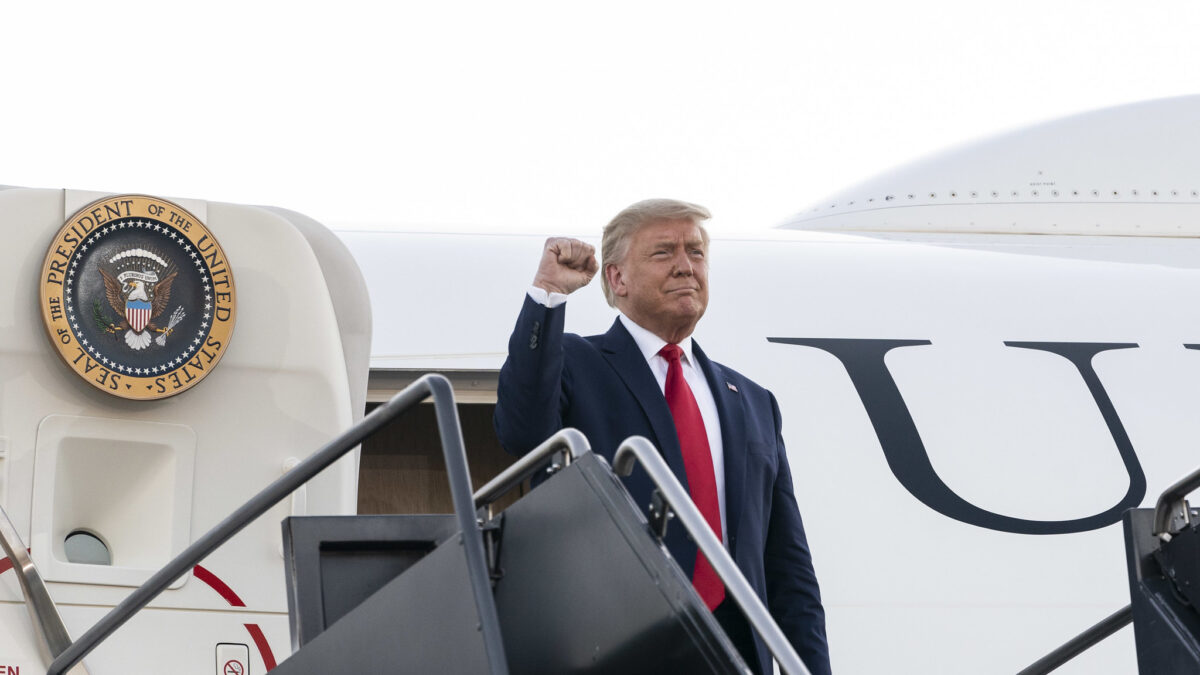Justice Sonia Sotomayor used Thursday’s Supreme Court hearing of Donald Trump’s presidential immunity claims to further Democrats’ debunked “fake electors” narrative.
The moment came during the high court’s questioning of Trump lawyer John Sauer, who argued that Special Counsel Jack Smith’s indictments against Trump should be dismissed because presidents are granted lifelong immunity from criminal prosecutions and therefore cannot be charged for actions they took while in office that fall within the scope of their official duties as president. Citing the Jan. 6, 2021, riot at the U.S. Capitol, Smith indicted Trump in August over his speech questioning the administration of the 2020 election.
In Thursday’s hearing, justices probed Sauer on hypotheticals and whether immunity could be granted to a president who, for example, uses the military to target his political opponents. Justice Samuel Alito discussed the issue of viewing such actions through an objective lens and noted that “one could say it’s not plausible … that that action would be legal.”
“I’m sure you’ve thought of lots of hypotheticals where a president could say, ‘I’m using an official power,’ and yet the president uses it in an absolutely outrageous manner,” Alito said. Sauer responded, “That, if it were an objective determination, may well be an interesting approach to take.”
Sotomayor then interjected, asking Sauer to apply such an approach to the allegations against Trump and repeating the baseless claim that the Republican electors who cast their votes for Trump ahead of Jan. 6, 2021, are “fake.”
“What is plausible about the president insisting and creating a fraudulent slate of electoral candidates?” Sotomayor asked. “Assuming you accept the facts of the complaint on their face, is that plausible that that would be within his right to do?”
“Absolutely, your honor,” Sauer argued, citing President Ulysses S. Grant “sending federal troops to Louisiana and Mississippi in 1876 to make sure that the Republican electors got certified in those two cases, which delivered the election to Rutherford B. Hayes.”
“The notion that it’s completely implausible … can’t be supported based on the face of this indictment,” Sauer added before being cut off by Sotomayor, who asked if such a standard could be applied even with a president “knowing that the slate [of electors] is fake; that they weren’t actually elected; that they weren’t certified by the state.”
Sauer disputed Sotomayor and Smith’s characterization of the electors as “fake” and “fraudulent,” and noted that “on the face of the indictment, it appears that there was no deceit about who had emerged from the realm at state conventions and this was being done as an alternative basis.”
Contrary to the web of dishonesty spun by Sotomayor and legacy media, the naming of contingent Republican electors during the 2020 election was neither unprecedented nor unlawful. In fact, as I’ve noted previously, the process undertaken in states such as Georgia “closely mirrors efforts taken during the 1960 presidential contest between John F. Kennedy and Richard Nixon.”
As Margot Cleveland has reported in The Federalist, a disagreement over who won Hawaii’s electoral votes prompted Kennedy and Nixon electors each to cast their votes for their respective candidates. And while Hawaii’s acting Republican governor certified the election for Nixon initially, a legal challenge and subsequent court decision resulted in the state’s electoral votes being given to Kennedy.
Had courts ruled in Trump’s favor in lawsuits disputing the election results in battleground states, the alternate electors would have been in place to ensure the will of the people was exercised.
Sotomayor’s latest display of activism from the bench came a day after Arizona Attorney General Kris Mayes, a Democrat, released an indictment alleging 18 Arizona Republicans illegally partook in what she called a “fake elector scheme.” According to The Daily Caller, the charges released thus far show “11 Arizona Republicans are named for allegedly submitting a document to Congress which falsely declared that Trump beat President Joe Biden in the state’s election.”
Among those named in the indictment are former Arizona GOP Chair Kelli Ward and her husband and Turning Point Action COO Tyler Bowyer.
Michigan Attorney General Dana Nessel, also a Democrat, charged 16 Republican electors in her state last July.
As my colleague Jordan Boyd previously highlighted, Democrats and their media allies had no problem “calling for electoral disobedience” after Trump won the 2016 election. In an effort to keep Trump out of office, so-called “news” outlets ran “[a]rticles demanding state electors ‘prevent an irresponsible demagogue from taking office’ and overrule Americans to install Hillary Clinton as president.”









